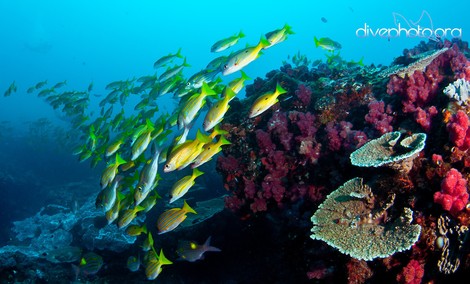Your podcast discovery platform
Curious minds select the most fascinating podcasts from around the world. Discover hand-piqd audio recommendations on your favorite topics.

piqer for: Climate and Environment Global finds Globalization and politics
I'm a freelance journalist, currently based in Madrid. I used to be a News Producer at CNBC in London before, but I thought a little bit more sun might do me good. Now I write for several news organizations, covering a range of topics, from Spanish politics and human rights for Deutsche Welle to climate change for La Marea.
Saving The Ocean Can Help Us Save Climate (Happy Belated World Oceans Day!)
I know. I'm late to World Oceans Day. I swear I was travelling!
Anyway, even being late, I didn't want to miss it. After all, every day should be Oceans Day.
The seas and oceans of our planet have been on the receiving end of some of the most severe early climate change effects. From melting icecaps and storms to acidification and sea level raise, many of the dreaded consequences of our global challenge are already affecting the water bodies of this planet.
The oceans are our biggest carbon sink, but that has a downside: A rise in atmospheric CO2 concentration is dramatically multiplied in marine ecosystems. One of the most famous effects is a rise in acidity, which damages species with carbonated hard parts, such as corals and crustaceans.
According to new research, creating more Marine Protected Areas (MPAs), particularly to protect some species of fish, could help us mitigate some of these effects. It's a very interesting angle, and one you probably won't read anywhere else:
Fish are known to absorb calcium from seawater, binding it to carbon and excreting it as a carbonate molecule that can form a weak base capable of neutralizing ocean acidity. Fish occupying the ocean’s mesopelagic zone (between 200 and 1,000 meters of depth) swim daily between the deep sea, where calcium is abundant, and the surface, where they release the carbonate. The paper argues that creating more MPAs in the open ocean to protect these kinds of fish could help mitigate ocean acidification.
The article also points to how MPAs could also help us reduce the catastrophic effects of storms and sea level rise.
Mongabay is focused on conservation stories, but they don't stop at the shoreline. They know their seas. They have teams dedicated to survey oceanographic research worldwide. Their editors are some of the most thorough and dedicated I have worked with. They bring up topics nobody else does, and explain them with flair and respect for the science.
I can't recommend it enough.
